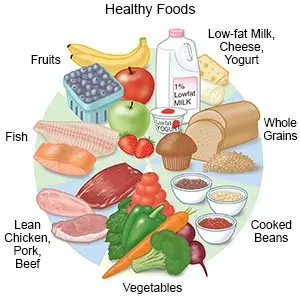What is irritable bowel syndrome (IBS)?
IBS is a condition that prevents food from moving through your intestines normally. The food may move through too slowly or too quickly. This causes abdominal pain, bloating, increased gas, constipation, or diarrhea.
What causes IBS?
The cause of IBS is not known. Any of the following may trigger IBS symptoms:
- Certain foods or liquids such as wheat, milk, alcohol, coffee, and artificial sweeteners
- Stress
- Medical conditions such as nerve damage, celiac disease, or infectious diarrhea
- Hormonal changes during a woman's monthly period
- Abnormal growth of bacteria in your intestines
What are the signs and symptoms of IBS?
Signs and symptoms of IBS may come and go. Symptoms can occur a few times a week to once a month. IBS can go away for years and suddenly return. Your symptoms may worsen after you eat a big meal or if you do not eat enough healthy foods. You may have any of the following:
- Abdominal pain that disappears after you have a bowel movement
- Abdominal cramps that are worse after you eat
- Gas
- Bloated abdomen
- Diarrhea, constipation, or both
- Feeling like you need to have a bowel movement after you just had one
- Mucus in your bowel movement
- Feeling that you have not completely emptied your bowels after a bowel movement
How is IBS diagnosed?
Your healthcare provider will ask about your symptoms and when they started. Your provider will ask what triggers your symptoms, and how long they last. You may need blood tests, a test of your bowel movement, or a lactose intolerance test. You may also need a bacteria breath tests, imaging scans of your abdomen, or a colonoscopy.
How is IBS treated?
There is no cure for IBS. The goal of treatment is to decrease your symptoms, such as abdominal pain or muscle spasms. You may need medicine to help you have a bowel movement, soften your bowel movement, or treat diarrhea. You may also need medicine to treat abnormal growth of bacteria, called a probiotic.
Treatment options
The following list of medications are in some way related to or used in the treatment of this condition.
- Bentyl
- dicyclomine
- Donnatal
- Librax
- Levsin
View more treatment options
How can I manage my IBS?
- Eat a variety of healthy foods. You may need to avoid certain foods to decrease your symptoms. Ask your provider about diets that might help your symptoms, such as the low FODMAP diet.

- Drink liquids as directed. Ask how much liquid to drink each day and which liquids are best for you. For most people, good liquids to drink are water, juice, and milk.
- Exercise regularly. Ask about the best exercise plan for you. Exercise can decrease your blood pressure and improve your health.

- Keep a record for 3 weeks. Include everything you eat and drink and your symptoms. Bring this record with you to your follow-up visits.
When should I seek immediate care?
- You have severe abdominal pain.
- Your bowel movements are dark or have blood in them.
When should I call my doctor?
- You have a fever.
- You have pain in your rectum.
- You are losing weight without trying.
- Your abdominal pain does not go away, even after treatment.
- You have questions or concerns about your condition or care.
Care Agreement
You have the right to help plan your care. Learn about your health condition and how it may be treated. Discuss treatment options with your healthcare providers to decide what care you want to receive. You always have the right to refuse treatment. The above information is an educational aid only. It is not intended as medical advice for individual conditions or treatments. Talk to your doctor, nurse or pharmacist before following any medical regimen to see if it is safe and effective for you.© Copyright Merative 2023 Information is for End User's use only and may not be sold, redistributed or otherwise used for commercial purposes.




